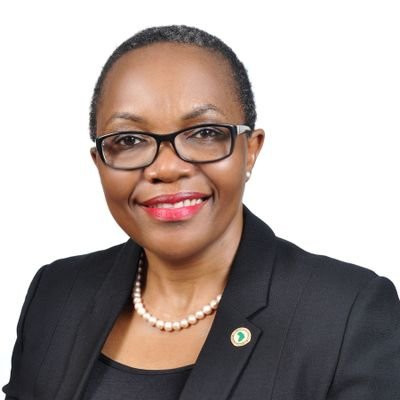
THE African Development Bank (AfDB)’s 2024 annual meetings held in Kenya last week underscored the importance of using Africa’s human capital to accelerate the continent’s development .
Stakeholders reiterated that Africa needs to leverage on the private sector to fund the skills development trajectory.
They proposed that this could be done by investing in technology to ensure skills the youth and women are adequately equipped with the relevant skills to take the continent forward.
AfDB’s human capital and skills development director Martha Phiri said the social transformation of Africa was at the centre of the bank’s programming this year.
“The bank recognises that a healthy, productive, and informative workforce will drive transformation, food security, power plants, improved care services, and health education, among other things,” she said, at a side event held under the theme ‘Harnessing Human Capital for Sustainable Growth and Development in Africa: Demographic Dividend and Circular Movement of Skilled Labour’.
Phiri added: “We have taken some approach that is not just about agriculture, but that is all-encompassing to integrate this into all that we do. Having affordable healthcare for all is also crucial, as is learning from the experience of COVID-19 on the continent. We support digital health and skills and have provided US$600 million to support African countries.”
Also speaking at the same side event, the Institute of Economic Affairs’ chief executive officer Kwame Owino said there was need for countries to ensure human capital was fully developed.
“There are many ways of ensuring human capital, but public education is the most basic fundamental. This together with the progress the country has made are significant factors in what the future is going to look like,” he said.
- New perspectives: Building capacity of agricultural players in Zim
- New perspectives: Building capacity of agricultural players in Zim
- Xenophobic attacks against Zimbabweans barbaric
- AfDB president Adesina coming to Zimbabwe
Keep Reading
Participants later agreed on the need to invest in human capital development to accelerate Africa’s growth.
African Research Consortium executive director Victor Murinde said quality education and harnessing technological development would enable the continent to reap the benefits of human capital development.
He added that there is need to invest in small enterprises, such as women enterprises, saying that is where potential for growth is.
“We need to ensure that we build necessary skills for young people and women, de-risk their investment, and handhold them by providing mentorship. These are ways of supporting human capital development,” Murinde said.
“There is also need to focus on high-quality research by providing opportunities for researchers on the continent to investigate burning research issues using the African dimension.”
Rockefeller Foundation African Regional Office vice-president Williams Asiko said his foundation was engaging in various projects to ensure human capital development on the continent.
“Part of what we have done is to support institutions where this human capacity can make a difference. Look at areas where there are gaps and build capacity around those areas,” he said.
“And one of the areas we focused on is building a carbon market in Africa that is fit for the world.”






